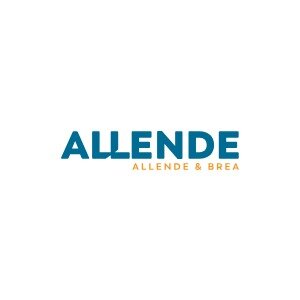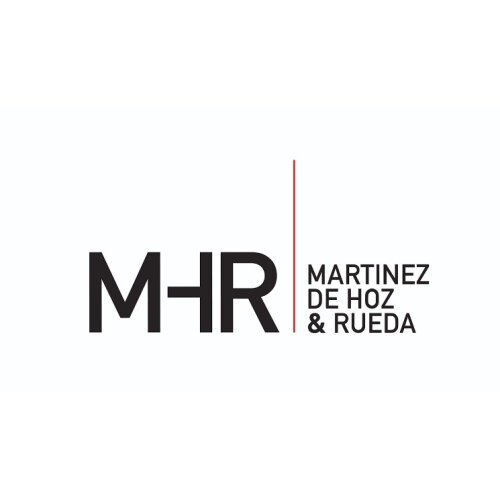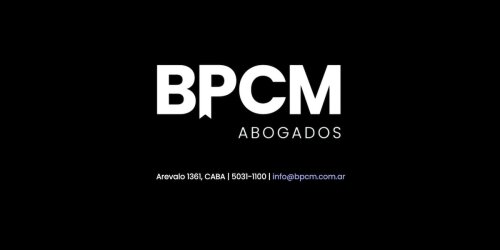Best Creditor Lawyers in Argentina
Share your needs with us, get contacted by law firms.
Free. Takes 2 min.
Or refine your search by selecting a city:
List of the best lawyers in Argentina
About Creditor Law in Argentina
Creditor law in Argentina encompasses various legal principles and regulations that govern the rights and responsibilities of creditors-entities or individuals to whom money is owed. This field of law is particularly significant in Argentina due to the country's fluctuating economic landscape, which affects debt collection and enforcement processes. A major component of creditor law includes bankruptcy and insolvency proceedings, which provide a legal framework for the resolution of debt-related issues. Creditors in Argentina need to navigate a complex legal terrain that includes both local and international regulations, especially regarding exchange rates and foreign debt.
Why You May Need a Lawyer
There are several situations where individuals or businesses may require legal assistance regarding creditor issues in Argentina. Common scenarios include:
- Disputes over outstanding debts and the need for debt recovery.
- Assistance in bankruptcy proceedings to ensure the representation of creditor interests.
- Negotiating payment plans or settlements with debtors.
- Legal guidance on credit agreements and enhancing creditor protection.
- Compliance with local regulations and international standards affecting debt collection.
Local Laws Overview
Certain key elements of local laws are crucial for understanding creditor rights in Argentina:
- Bankruptcy Law 24,522: Governs collective procedures for bankruptcy and insolvent debtors, detailing the processes for creditors to recover debts.
- Civil and Commercial Code: Provides general rules and principles regarding debtor-creditor relationships and conditions for enforcing credit agreements.
- Fair Credit Reporting Act: Establishes guidelines for credit reporting agencies and the rights of creditors in accessing necessary financial information.
- Foreign Exchange Regulations: Affect how creditors deal with cross-border debts and exchange rate considerations.
Frequently Asked Questions
What is the process for collecting a debt in Argentina?
The debt collection process typically involves sending a formal demand for payment, which, if unsuccessful, may lead to initiating legal proceedings to obtain a court order for the debtor to pay.
Can a creditor initiate bankruptcy proceedings against a debtor?
Yes, a creditor can file a petition for bankruptcy if the debtor owes a certain minimum amount and has ceased paying its obligations when due.
What legal actions can creditors take if a debtor defaults?
Creditors can file lawsuits for debt collection, initiate bankruptcy proceedings, or negotiate repayment plans with the debtor.
How long does it take to resolve a debt recovery lawsuit?
The time frame varies depending on the complexity of the case, court caseload, and whether the debtor contests the proceedings, but it can range from several months to a few years.
Are there any limitations on interest rates charged by creditors?
Yes, interest rates are generally subject to regulatory oversight to prevent usury, and rates that considerably exceed market norms may be deemed unenforceable.
What documentation is required for debt collection?
Proof of debt, such as contracts, invoices, and payment records, is critical for substantiating claims in legal proceedings.
Do international creditors face additional challenges in Argentina?
Yes, international creditors may encounter issues related to currency exchange and cross-border enforcement of judgments which require specialized legal knowledge.
How does a creditor ensure their claim is recognized in bankruptcy proceedings?
Creditors must file a proof of claim with the bankruptcy court and may need to actively participate in proceedings to ensure their interests are represented.
Can a creditor enforce a foreign judgment in Argentina?
Yes, foreign judgments can be enforced in Argentina, but they must first be recognized by an Argentine court, a process known as exequatur.
What options are available if a debtor proposes an out-of-court settlement?
Creditors can negotiate terms directly with the debtor, potentially achieving a mutually agreeable resolution while avoiding formal proceedings.
Additional Resources
For additional assistance, the following resources may be helpful:
- Ministry of Justice and Human Rights: Provides information on current legislation and legal processes.
- Argentine Central Bank: Offers guidance on regulations affecting financial transactions and creditor rights.
- Argentine Association of Credit and Collection Professionals: A valuable resource for networking and professional advice.
Next Steps
If you believe you need legal assistance in creditor matters, consider the following steps:
- Gather all relevant documentation related to your case, such as contracts, invoices, and communication with the debtor.
- Consult with a legal professional specializing in creditor law to assess your situation and explore your options.
- Consider the potential outcomes and costs of pursuing legal action before proceeding.
- If necessary, retain a lawyer to represent your interests and guide you through the legal processes involved.
Lawzana helps you find the best lawyers and law firms in Argentina through a curated and pre-screened list of qualified legal professionals. Our platform offers rankings and detailed profiles of attorneys and law firms, allowing you to compare based on practice areas, including Creditor, experience, and client feedback.
Each profile includes a description of the firm's areas of practice, client reviews, team members and partners, year of establishment, spoken languages, office locations, contact information, social media presence, and any published articles or resources. Most firms on our platform speak English and are experienced in both local and international legal matters.
Get a quote from top-rated law firms in Argentina — quickly, securely, and without unnecessary hassle.
Disclaimer:
The information provided on this page is for general informational purposes only and does not constitute legal advice. While we strive to ensure the accuracy and relevance of the content, legal information may change over time, and interpretations of the law can vary. You should always consult with a qualified legal professional for advice specific to your situation.
We disclaim all liability for actions taken or not taken based on the content of this page. If you believe any information is incorrect or outdated, please contact us, and we will review and update it where appropriate.
Browse creditor law firms by city in Argentina
Refine your search by selecting a city.












